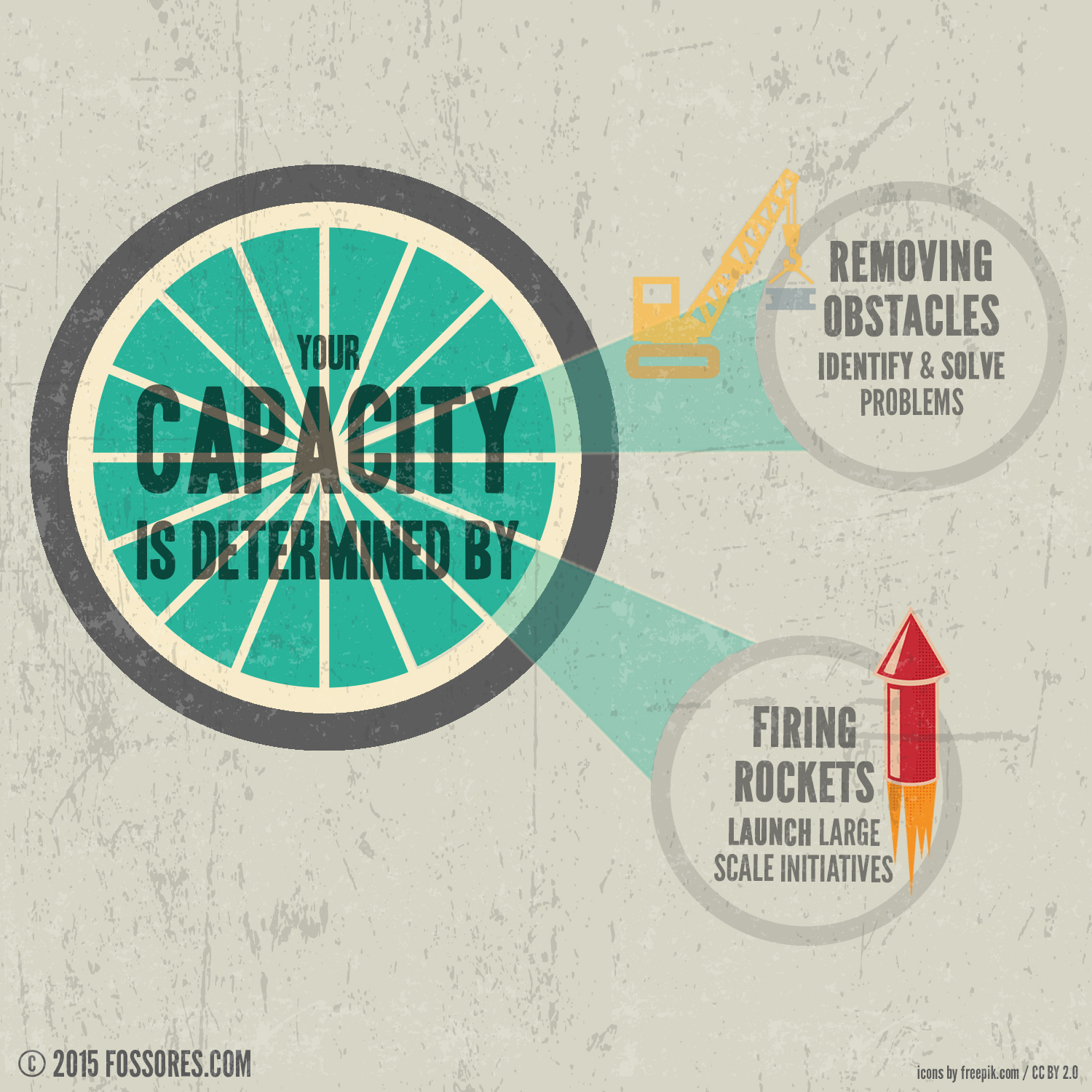Self-evaluation is crucial in Christian ministry. Most ministry jobs lack clear pathways to success, and most pastors struggle to provide reliable answers to basic problems like:
How do you get people to come to church?
How do you actually make disciples?
The determining factor between good pastors and great pastors isn’t education or training, denominational support or peer camaraderie. It’s capacity—it’s how much you can do well.
Capacity is limited by competence—you have to be able to do some things well before you can determine how many well-done things you can achieve. Conversely, you can be fantastically competent but with a very small capacity (as is true in the case of pastors who earnestly care for small congregations).
Everyone can be great (competence), but even great pastors are limited by how much ministry they can personally administer. Imagine how fast Westwinds could grow if we had a pastor like Bill Hybels or Larry Osborne. We’re already a large church, especially given the size of our small town, but an über-leader could grow our congregation to double or triple our current size based on their twin ability to [1] remove obstacles, and [2] launch large-scale initiatives.
Capacity is determined by the ability to remove obstacles and fire rockets.
Once you’ve removed every obstacle you can identify and launched every rocket, you’ve reached your capacity. Alternately, if you’ve identified problems which you have not removed (nor put a concrete, actionable plan in place to remove them in the near future), or if you’ve dreamed up initiatives for which you have no real strategy to launch, then you’re underperforming.
- What obstacles currently prevent you from greater effectiveness in ministry? How will you deal with them?
- What great dreams and noble ambitions do you have to shadow God in your current context? How will you make them happen?
…To be continued in part two.
fossores
Related posts
Categories
Category Cloud
Tag Cloud
Recent Posts
- Victors and Victims November 6, 2018
- 3 Hacks for Happiness October 29, 2018
- Hope Against Death September 20, 2018
- The Shape Of The Cross September 19, 2018


